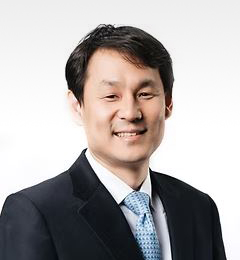SNU Robotics: Advancing Technology for Humanity
Professor Kyu-Jin Cho

Seoul National University (SNU) College of Engineering is pioneering advancements in robotics and technology through a cohesive vision that blends human-centered design, interdisciplinary innovation, and cutting-edge AI integration. Across diverse domains—from healthcare to space exploration—SNU researchers are tackling global challenges with scalable, robust, and generalizable solutions that prioritize human quality of life. With over twenty professors engaged in diverse robotics research areas, the College fosters a rich and collaborative environment that drives progress across various domains. Among these, eight professors are highlighted in this article.
In healthcare, SNU researchers are revolutionizing patient care with robotics. For example, Professor Jinsoo Kim's wearable exosuit offers a groundbreaking solution for freezing of gait in Parkinson's patients, restoring mobility and improving gait quality with immediate results. Meanwhile, Professor Amy Kyungwon Han's work in soft robotics introduces actuators and sensors for safer surgeries and advanced cardiac implants, demonstrating the potential of robotics in medical interventions.
Autonomous systems at SNU are powered by advancements in perception, decision-making, and adaptive learning. Professor Jun Won Choi's SPA Lab integrates data from LiDAR, radar, and cameras to develop robust perception and planning technologies for human-level autonomous driving. Complementing this, Professor Ayoung Kim's RPM Robotics Lab tackles the challenges of transparent object detection using the TRansPose dataset and PrimA6D++ network, enabling robots to interact intelligently in complex environments. Professor Frank Chongwoo Park bridges classical control theories and AI to create adaptable learning robots. His work in geometric machine learning and data-efficient training equips robots to perform diverse tasks across industries with reliability and precision. These efforts demonstrate how SNU researchers are integrating AI, perception, and learning technologies to enable robots and vehicles to navigate, adapt, and interact seamlessly in dynamic, real-world environments.
In construction, Professor Changbum Ahn's SNUCEM Lab is integrating XR-based teleoperation and multimodal interfaces to enable seamless human-robot collaboration. This research ensures safety and precision in dynamic construction settings. In addition, Professor Hyoun Jin Kim's Laboratory for Autonomous Robotics Research (LARR) is pushing the limits of aerial robotics with manipulators designed to perform advanced tasks, leveraging machine learning to enable decision-making in challenging environments
Space exploration is rapidly evolving with innovations from Professor Hyeongjun Park's Space Mobility and Robotics Lab. From autonomous spacecraft docking to on-orbit servicing, the lab's groundbreaking collaborations with NASA demonstrate the transformative potential of robotics in interplanetary missions and space transportation.
SNU's robotics initiatives share a unifying theme: leveraging technology to empower humanity. By integrating human-centered design, cutting-edge AI, and interdisciplinary approaches, these efforts are paving the way for a smarter, more connected world. From improving healthcare and enabling autonomy to exploring the cosmos, SNU's research exemplifies how robotics can enhance lives and drive progress. Together, these innovations are not just shaping the future—they are making it accessible, inclusive, and sustainable.
Beyond the projects highlighted here, SNU's College of Engineering encompasses a vast array of robotics research. Centers such as the Soft Robotics Research Center (SRRC) and the Biomimetics Robotics Research Center (BMRR), along with numerous other professors and labs, contribute significantly to the university's leadership in this field. This extensive network of experts and facilities highlights SNU's commitment to advancing robotics and technology on a global scale.